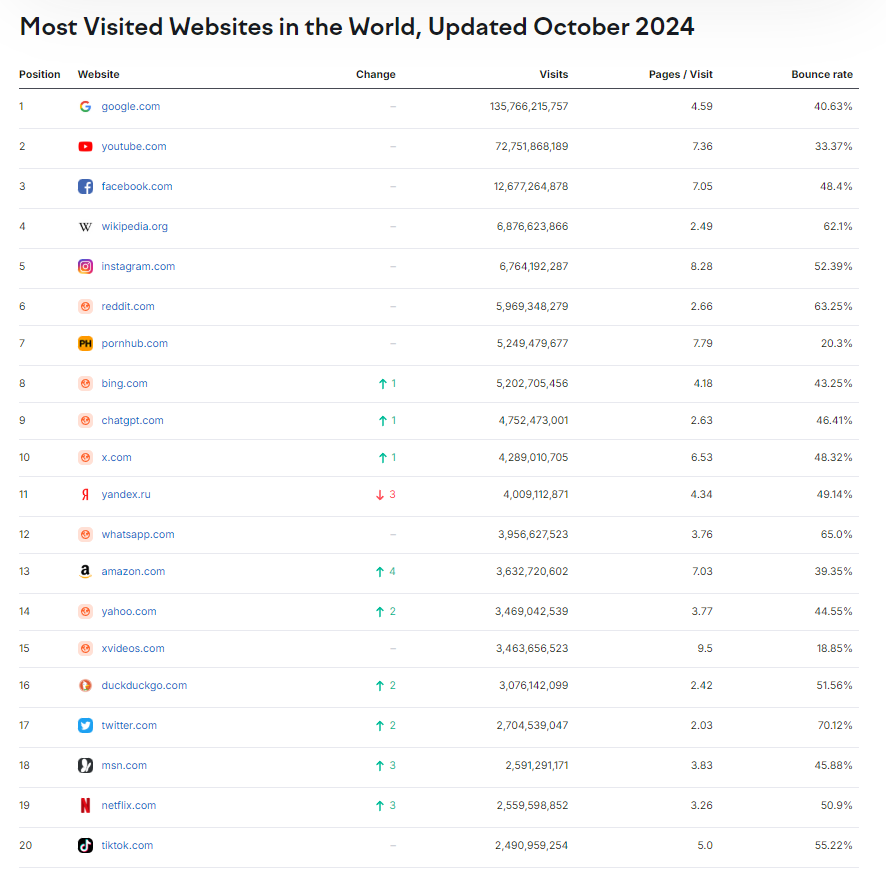Spotlight #522
Good Monday Morning!
It’s January 6th. The Supreme Court will hear last-minute arguments on Friday regarding TikTok’s ability to operate in the U.S. A bill signed last April requires owner ByteDance to sell the company to an American entity or cease U.S. operations.
Today’s Spotlight is 1,351 words, about 5 minutes to read.
3 Headlines to Know Now
Treasury Confirms Chinese Hack
The Treasury Department alerted lawmakers to a hack by a Chinese intelligence agency that accessed unclassified documents. Earlier this year, Commerce Secretary Gina Raimondo’s email was also breached by the Chinese government.
Universal USB-C Requirement Expands Globally
Europe now mandates USB-C compatibility for all small and medium portable electronics. India will follow later this year, with California adopting the rule starting January 1, 2026.
What this means for you: Expect streamlined charging and fewer proprietary cables as the USB-C standard becomes universal.
Court Strikes Down FCC Net Neutrality Rules
A federal appeals court invalidated the FCC’s net neutrality rules, ending a policy introduced under Obama, repealed under Trump, and now overturned in court. Net neutrality remains state law in California, Colorado, and Washington.
Net Neutrality Explainer: Net neutrality means internet providers must treat all data equally—no blocking, throttling, or prioritizing specific websites or services.
Top Websites by Traffic
By the Numbers

George’s Data Take
Of the 8 billion people on Earth, 5.5 billion are online. Wikipedia and Reddit have climbed into the top 6 most-visited sites, but Pornhub (#7) and Xvideos (#15) each draw billions of visits monthly. Notably, Pornhub sees nearly half Facebook’s traffic despite bans in multiple U.S. states.
Game Finds Success in Military Market
Running Your Business
A British family business turned a consumer wargame into a global defense tool, used by militaries like the Pentagon and NATO to simulate battles and test strategies. The software’s detailed accuracy and adaptability have made it indispensable for training and analysis.
Behind The Story: This unassuming game, created by non-military developers, first caught an Air Force officer’s attention for modeling fuel consumption in battle scenarios. Today, it’s used by militaries worldwide—a powerful reminder that the company you end up building may not be the one you originally envisioned. See it in action via this gift link.
Spotlight on Digital Consent vs. Crime

The internet’s reach is staggering: 5.5 billion people online, billions of visits to adult video sites monthly. It’s an amplified digital evolution of 1950s peep shows and 1980s video stores. The gamut runs from harmless indulgence and ethical dilemmas, all the way to outright crimes, each shaped by technology and society.
Where Consent Thrives
Adult platforms like OnlyFans and Pornhub represent consensual expression for many. Musician Lily Allen recently revealed she earns more from selling photos of her feet on OnlyFans than from Spotify royalties created by nearly 8 million listeners—an illustration of empowered monetization in the digital age. But even here, cracks show.
Pornhub’s self-blocking in 16 U.S. states highlights age-verification laws’ unintended consequences—driving users to unsafe, unregulated corners of the web or complying with age-verification processes that risk creating sensitive databases tied to personal identities.
The Darker Side
Not all online interactions respect consent. Crime is rampant.
- Revenge Porn: Intimate photos weaponized for humiliation remain a constant occurrence, with platforms like Instagram struggling to combat misuse.
- Sextortion: Scammers exploit victims’ explicit photos, threatening exposure unless paid—a scheme tied to suicides of at least 20 boys since 2021.
- CSAM: Child sexual abuse material proliferates through live-streaming apps, with victims often coerced by relatives or strangers exploiting poverty.
These aren’t isolated incidents. Even apps like Spotify faced criticism for surfacing explicit content, raising concerns about moderation and access.
Simultaneously, AI-powered chatbots and platforms like Muah.ai enable users to create disturbing abuse-simulating interactions, exposing the dark side of poorly-regulated AI.
Cultural and Ethical Tensions
Our discomfort in defining boundaries shows in controversies like deepfakes targeting Congresswomen—1 in 6 has been victimized by AI-generated explicit imagery. This disproportionately affects women, echoing broader issues of systemic misogyny, exploitation, and sexual violence committed against women for commercial purposes.
Meanwhile, creators like Lily Allen and influencers like “Jacky Dejo,” a child influencer navigating the monetization of her platform, walk the tightrope between empowerment and the risks of sexualization online.
Legislative Struggles
Laws are painfully slow to adapt. Efforts to address age verification, deepfakes, and sextortion reveal a fractured legal landscape.
- Age Verification: Laws meant to protect children risk exposing adults’ sensitive data, fueling privacy concerns, and in Pornhub’s case, removing itself from markets.
- Deepfake Regulation: Few states address this emerging harm, leaving victims with little recourse. The fact that lawmakers themselves are victims without recourse paints a bleak picture.
- Child Safety: Proposals like the DEFIANCE Act, which seeks to strengthen penalties and expand protections against CSAM and sextortion, face challenges due to concerns about overreach and potential free speech violations.
Courts are stepping in. Tennessee’s age-verification law was blocked over privacy violations, while the Supreme Court will soon weigh whether age verification violates the First Amendment.
AI and Tech’s Role
Technology accelerates exploitation. Deepfakes, live-streaming apps, and “shameware” tools marketed to religious groups highlight tech’s complicity. Platforms profit from users’ vulnerability while failing to moderate content effectively.
Even prevention tools falter. Apps like Covenant Eyes, designed to deter pornography use among religious users, collect sensitive data that can be weaponized by abusive partners or hackers, further eroding trust in digital safeguards.
The Bottom Line
The online world mirrors our offline complexities—only faster and broader. Balancing freedom, ethics, and safety will require laws, tech, and cultural shifts to evolve together. For now, the spectrum of online sex remains a reflection of both our progress and our failures.
But it’s also a shared issue. Those billions of visits to the top video sites every month proves that.
Meta Halts AI Bots Mimicking Humans
Practical AI
Meta paused its new AI bot program, designed to mimic human behavior online, following public outcry. The bots, which posted content and carried an “AI by Meta” label, sparked concerns over authenticity and ethics.
False Claim Ties New Orleans Attack to Border
Debunking Junk
Fox News, Rep. Marjorie Taylor Greene, and President-elect Donald Trump amplified a false claim that the New Orleans attacker crossed the southern border days before the incident. Fox later corrected its report, clarifying the truck crossed into Texas in November with a different driver. The attacker, Shamsud Din Jabbar, was a U.S. citizen born in Texas.
OnlyFans Mods Impersonate Creators
Protip
The person messaging you on OnlyFans might not be the creator. Many accounts use low-wage chat moderators to impersonate creators and manage conversations, maintaining the illusion of direct interaction. Brendan Koerner posed as one in this expose.
Kellogg’s & Their Must See Rooster
Screening Room
Underwater Living Takes A Leap Forward
Science Fiction World
British startup Deep is launching the Vanguard habitat, supporting up to three scientists for week-long missions at depths of 200 meters. By 2027, the larger Sentinel system will house six scientists for months at a time. The goal is permanent underwater dwelling by 2030.
Evo Creates Genomes and Proteins
Tech For Good
Evo, a new AI from Stanford, offers hope for designing synthetic genomes to produce new drugs, clean up pollution, and enhance food production. While not perfect, its creators prioritized research over profit by making it publicly available.
ChatGPT’s Time Capsule of Your Year
Coffee Break
Reddit user Ok-Curve-6429 suggests a fun experiment: ask ChatGPT to deliver a “Spotify-esque Wrapped” review of your year. Their shared prompt:
“Can you give me a Spotify-esque wrapped of my time talking with you this year? Make it seem detailed and fun to read! Feature statistics, facts, and fun numbers for me to read about myself.”
ChatGPT nailed it with personalized stats and humor. Google Gemini and Meta’s AI stumbled, while Anthropic’s Claude huffed about not reusing chat history. Score one for OpenAI in my testing.
Sign of the The Times
